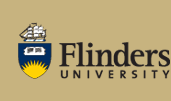
To be read in conjunction with the program of study requirements for the Bachelor of Science (Honours) – 4 years.
The Marine Biology Specialisation is offered as part of the Bachelor of Science (Honours) and requires four years of full-time study (or the equivalent part-time). The Specialisation is offered by the School of Biological Sciences, within the Faculty of Science and Engineering.The minimum requirements for consideration for entry to all undergraduate courses are specified in detail in the University Entry Requirements.
There are no formal prerequisites for the specialisation in Marine Biology, but knowledge of Mathematics and/or Physics to SACE Year 11 level is desirable.
The course aims to provide students with a broad understanding of the biology of marine organisms, their relationships with the physico-chemical marine environment, and their potential responses to changes. It also provides students with the ability to acquire extensive subject knowledge in marine biodiversity, ecology, genetics, conservation, fisheries and related areas. It builds several transferable skills for research, analysis and communication including the capability to:
This course provides the broad-based foundation that will support ongoing professional development, preparing graduates for further study in marine sciences or for a career in marine biology or related area where the range of skills and knowledge acquired is needed or desirable.
Graduates of the course are expected to:
To qualify for the Bachelor of Science (Honours) (Marine Biology) specialisation a student must complete 144 units, with a grade of P or NGP or better in each topic, according to the Bachelor of Science (Honours) – 4 years program of study. The program of study for the specialisation is detailed below:
27 units comprising:
BIOL1101 Evolution of Biological Diversity (4.5 units)
BIOL1102 Molecular Basis of Life (4.5 units)
BIOL1301 Introduction to Marine Biology## (4.5 units)
EASC1102 Marine Sciences## (4.5 units)
Plus either:
CHEM1101 Chemistry 1A## (4.5 units) AND
CHEM1102 Chemistry 1B## (4.5 units)
or
CHEM1201 Introduction to Chemistry A## (4.5 units) AND
CHEM1202 Introduction to Chemistry B## (4.5 units)
##Cognate studies
27 units comprising:
BIOL2701 Experimental Design and Statistics for Biology (4.5 units)
BIOL2702 Genetics, Evolution and Biodiversity (4.5 units)
BIOL2711 Ecology (4.5 units)
BIOL2712 Animal Diversity (4.5 units)
BIOL2742 Marine Ecology (4.5 units)
EASC2701 Coasts and Oceans (4.5 units)
27 units comprising:
BIOL3700 Biology Research Project (4.5 units)
BIOL3701 Conservation Biology and Restoration Ecology (4.5 units)
BIOL3702 Marine and Freshwater Biology (4.5 units)
BIOL3711 Plant and Algal Diversity (4.5 units)
BIOL3751 Marine Mammals, Birds and Reptiles (4.5 units)
BIOL3752 Fisheries Biology, Science and Management (4.5 units)
36 units comprising:
BIOL4700A Biology Honours Research Project (4.5/22.5 units)
BIOL4700B Biology Honours Research Project (4.5/22.5 units)
BIOL4700C Biology Honours Research Project (4.5/22.5 units)
BIOL4700D Biology Honours Research Project (4.5/22.5 units)
BIOL4700E Biology Honours Research Project (4.5/22.5 units)
BIOL4710 Honours Critical Readings (4.5 units)
BIOL4720 Honours Grant Writing Skills (4.5 units)
BIOL4730 Honours Scientific Methods and Data Presentation (4.5 units)
CRICOS Provider: 00114A | Updated: 16 Aug, 2010